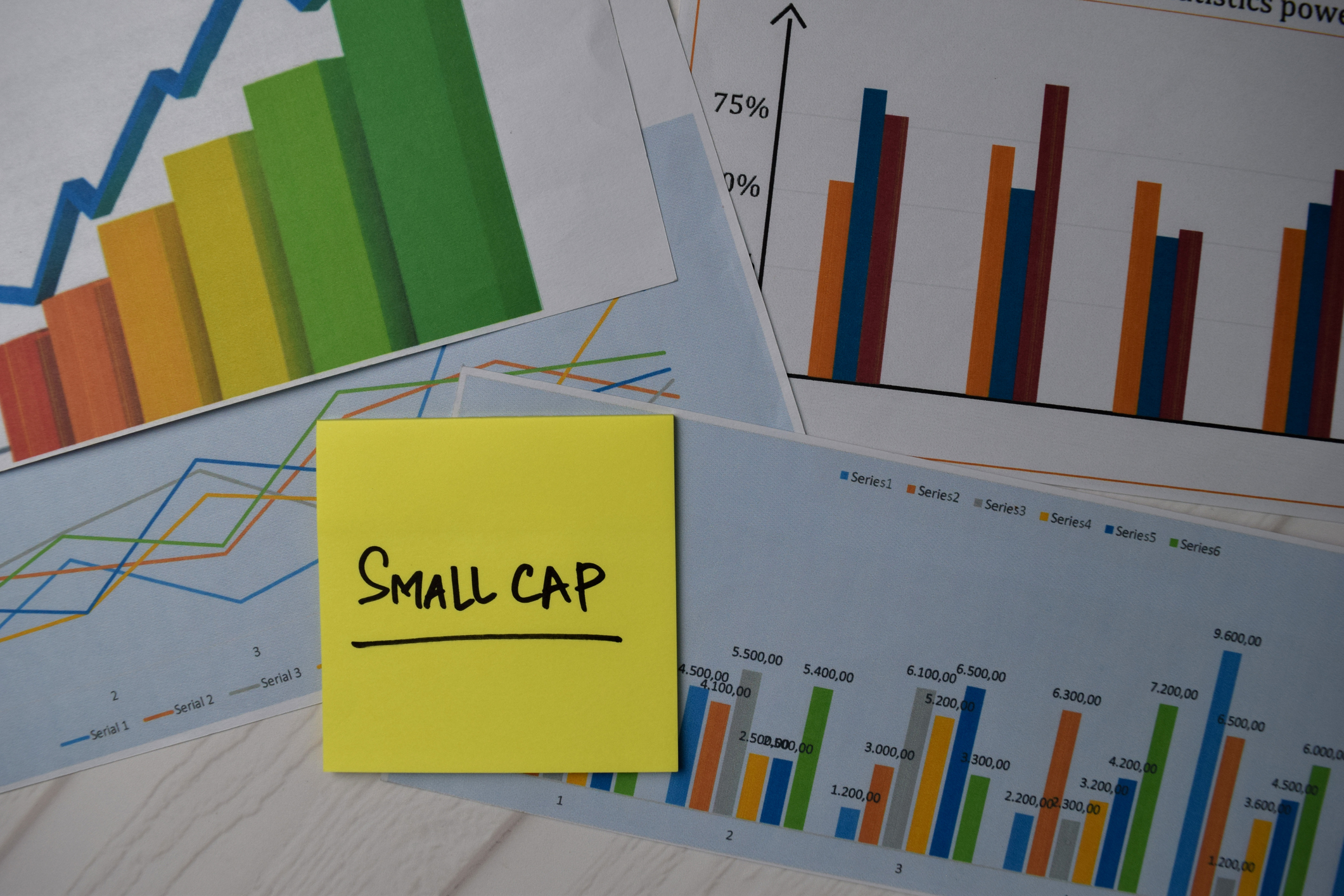
Equity markets have trended upward historically, even though there have been long stretches of flat returns.
After the Great Depression in the 1930s, markets moved sideways for years. The same thing happened between 1999 and 2009 after the dot-com bubble burst and the 2008 financial crisis.
But even with these periods, it's widely accepted that stocks rise over time. In short, when it comes to bull markets vs bear markets, the bulls win.
Companies sell more products and services, generate profits and return value to shareholders. That value comes through reinvesting in projects that can deliver future growth, buying back shares so each share represents a larger ownership stake, or paying out cash dividends.
Market leadership is less predictable. The market is not a single homogenous entity, even though people often refer to it that way. Some styles lead for long stretches, such as value vs growth.
Certain sectors, like technology, have repeatedly outperformed others such as energy. Even countries can rotate in and out of leadership, with U.S. stocks beating European stocks for much of the past decade.
Another clear area of divergence is size. Large-cap stocks, especially the blue chips that dominate index benchmarks the S&P 500 and Nasdaq 100, have outperformed small caps over the last decade.
Small-cap stocks are generally companies with a market capitalization of around two billion dollars or less. Their lag has been a source of frustration for institutional investors and asset allocators because long-standing research pointed to the opposite result.
Much of that research traces back to Eugene Fama and Kenneth French, whose three-factor model expanded on the basic capital asset pricing model (CAPM). One of the key factors, size, proposes that smaller companies should earn higher average returns than larger ones over long periods.
Despite the recent period of small-cap underperformance, many ETFs still aim to capture this potential premium, giving contrarian investors an opportunity to outperform the market.
What is the small-cap size premium?
The size premium comes from decades of financial research that attempted to explain which quantitative factors drive stock outperformance. Early work relied on CAPM, which suggested that a stock’s returns should be explained mainly by its sensitivity to overall market movements.
In practice, this left many questions unanswered. CAPM did not fully explain why certain groups of stocks consistently outperformed others, and its ability to describe real-world returns fell short.
For everyday investors, the issue was that actual market behavior did not line up with what the model predicted.
This led Eugene Fama and Kenneth French to expand the research. They used a statistical technique that grouped and compared large sets of historical stock data to see which characteristics appeared to influence returns.
Through this work, they identified two additional factors that seemed to matter beyond what CAPM captured. One of those was size.
In their framework, the size factor is expressed as "Small Minus Big," often abbreviated as SmB. It measures the difference in returns between portfolios of small companies and portfolios of large companies.
If small companies outperform large companies, the SMB factor delivers a positive result. This became known as the size premium.

Fama and French also proposed reasons why this premium might exist. Smaller companies tend to be riskier, may have less access to capital, and often operate with more uncertainty. Investors might demand higher long-term returns as compensation.
They also argued that smaller companies can grow faster because they start from a smaller base, which can lift long-term returns.
The research did not stop there. The size factor has been refined many times, and one of the most important updates came in September 2018, when Cliff Asness and his colleagues at AQR Capital published a paper titled "Size matters, if you control your junk."
Their argument was that much of the apparent disappearance of the size premium came from one issue. Many small-cap stocks were "junk" companies with highly leveraged balance sheets and poor profitability.
Once they adjusted the data to exclude these weaker companies, the size premium reappeared in a more consistent way.
The takeaway is that factor research has evolved for decades, and the size premium is not a simple rule. ETF managers targeting the size factor use many approaches, ranging from specialized index construction to fully proprietary active strategies.
The way each fund defines and captures the size premium varies, and these differences can affect both risk and performance.
How we chose the best small-cap ETFs
Given the specialization within the small-cap space, we adjusted our usual ETF selection criteria. For this ranking, we did not exclude actively managed ETFs. The S&P Indices vs Active (SPIVA) study shows a challenging long-term record for small-cap active managers.
Over a 15-year period, 85.4% of small-cap active funds underperformed the S&P SmallCap 600 Index. The short-term numbers are more forgiving. Over five years, 61.6% underperformed, and over three years that figure dropped to 30.21%.
A newer generation of small-cap ETFs is also far cheaper than older small-cap mutual funds. Since high fees contributed to much of the historical underperformance, that drag is less severe today. Because of this, we evaluated passive and active ETFs on equal footing.
Fees were the first screen. Passive small-cap ETFs tracking an index were limited to a maximum expense ratio of 0.20%. Active small-cap ETFs were capped at 0.30%.
On a $10,000 investment, these limits translate to $20 and $30 a year in fee drag, respectively. Several active funds fall within this range, making them realistic options.
We then applied filters for fund stability and trading efficiency. A minimum of $1 billion in assets under management ensured we focused on well-established ETFs with low closure risk.
We also required a 30-day median bid-ask spread of 0.25% or less. This accounts for naturally lower liquidity in small caps while helping minimize slippage for investors.
To sharpen the comparison, we used a factor regression tool from Portfolio Visualizer to measure each ETF's loading on the size factor. This was based on monthly returns over a 36-month rolling window.
The goal was to see how much true small-cap exposure each ETF provides, rather than assuming all funds labeled "small cap" behave the same way.
- Expense ratio: 0.07%
- Assets under management: $31.1 billion
- SMB loading: 0.53
- 30-day median bid-ask spread: 0.05%
Fee-conscious investors looking for broad small-cap exposure may find the Vanguard Small-Cap Value ETF (VBR) appealing. True to Vanguard's style, the 0.07% expense ratio is among the lowest in the category.
VBR tracks the CRSP US Small Cap Value Index, a benchmark with more than 840 stocks. It has a 22.6% overweight in industrials and a 19.5% allocation to financials. Regional banks in particular make up a meaningful slice of the financials weighting.
The size loading of 0.53 is solid, but not perfect. This is because VBR's benchmark is broad enough that some mid-cap names appear in the portfolio. This is evident from its median market cap of $8.7 billion, which sits in the mid-cap range.
Even so, as a single-ticker solution, VBR is suitable for beginner investors who want a measured and less volatile entry into small caps.
Learn more about VBR at the Vanguard provider site.
- Expense ratio: 0.19%
- Assets under management: $67.4 billion
- SMB loading: 0.89
- 30-day median bid-ask spread: 0.01%
The iShares Russell 2000 ETF (IWM) is one of the most popular small-cap ETFs by sheer size, driven largely by the brand recognition of the Russell 2000 Index.
This benchmark is the classic “buy the haystack” approach. It does not apply filters for profitability, balance-sheet quality, or other fundamental traits. If a company is investable, liquid enough, and falls within the Russell methodology, it's included.
The 0.19% expense ratio makes it less appealing for long-term buy-and-hold investors compared with cheaper peers, but IWM remains one of the top trading vehicles in the small-cap category.
It trades at extremely high volume and has a tight spread. IWM is also one of the few ETFs with daily expiring options contracts, which adds to its popularity among active traders.
Learn more about IWM at the iShares provider site.
- Expense ratio: 0.03%
- Assets under management: $12.5 billion
- SMB loading: 0.84
- 30-day median bid-ask spread: 0.02%
The Russell 2000 Index used by IWM fits the "junk" issue described by Cliff Asness. Its broad and relatively permissive rules allow many weaker companies to enter the index.
The State Street SPDR Portfolio S&P 600 Small Cap ETF (SPSM), which tracks the S&P SmallCap 600 Index, offers a more selective alternative.
To be eligible for the S&P 600, a company must meet stricter criteria, including a history of positive earnings.
Another difference is index maintenance. The Russell 2000 is reconstituted once a year, which can create front-running as traders anticipate changes.
The S&P 600 uses a committee-based process that makes additions and removals throughout the year, reducing predictable trading patterns.
Learn more about SPSM at the SPDR provider site.
- Expense ratio: 0.27%
- Assets under management: $11.5 billion
- SMB loading: 0.72
- 30-day median bid-ask spread: 0.02%
Dimensional Fund Advisors was started with direct involvement from Eugene Fama and Ken French, and much of its investment culture reflects its factor-based research. The Dimensional US Small Cap ETF (DFAS), an actively managed small-cap ETF, is the group's flagship.
While the exact methodology is not disclosed in detail, Dimensional is known for controlling for profitability and other quality measures internally.
Since the mutual fund variant launched in December 1998, the strategy has outperformed the Russell 2000 Index with an annualized total return of 9.25% versus 8.57%.
Unlike many active funds, turnover is low at roughly 8% a year. That helps reduce trading frictions and allows strong performers to compound.
Learn more about DFAS at the Dimensional provider site.
- Expense ratio: 0.25%
- Assets under management: $1.9 billion
- SMB loading: 1.00
- 30-day median bid-ask spread: 0.25%
Avantis Investors was founded by former Dimensional employees who set out to build a modern factor ETF lineup while Dimensional was still focused on mutual funds. The Avantis U.S. Small Cap Equity ETF (AVSC) is their direct competitor to DFAS.
In addition to profitability screens, the Avantis process incorporates as part of its entry and trading framework to avoid buying against prevailing trends. However, active management does not guarantee outperformance.
Over the most recent three-year and one-year periods, AVSC has lagged the Russell 2000 Index. Liquidity is also an issue.
The 0.25% spread barely meets our cutoff and makes AVSC one of the less liquid ETFs in this list, although this could improve as the fund grows.
Learn more about AVSC at the Avantis provider site.







